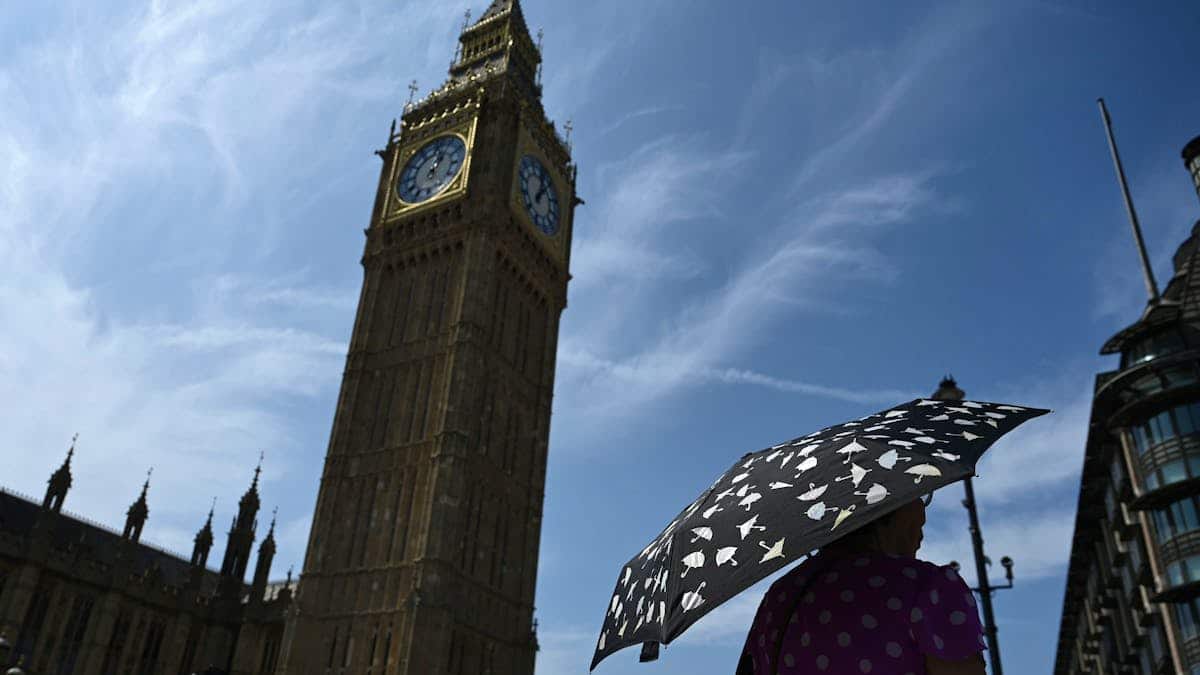Japan, South Korea and the United Kingdom have known record heat this summer, symptoms of particularly rapid global warming on European and Asian continents.
The average temperature in Japan between June and August “was 2.36 ° C greater than the average value, which has made it the hottest summer since the start of the statements in 1898,” the Japanese meteorological agency (JMA) announced on Monday, and the “third consecutive summer with record temperatures”.
During the same period, in South Korea, the average temperature was 25.7 ° C, “the highest since the start of data collection in 1973”, according to the Korean weather administration.
The previous record for the same period was 25.6 ° C, established last year.
Thousands of kilometers, the United Kingdom has also experienced its warmest summer ever recorded since the start of the statements in 1884, broke the 2018 record, according to the Metorological Agency Met Office.
The average temperature noted between June 1 and August 31 was 16.10 ° C, or 1.51 ° C above the long-term average, with four heat waves and a shortage of water. The hottest five summers ever recorded in the United Kingdom now all took place after 2000.
In this country with an oceanic climate, where the accommodation was not designed to have such temperatures, a third of the British said they had trouble maintaining their housing in the fridge this summer, and almost 47% have had sleep problems, according to a survey by the Citizens Advice association.
In Japan, scorching heat led to the hospitalization of some 84,521 people throughout the country between May 1 and August 24, a slight increase compared to the 83,414 people hospitalized during the same period in 2024, according to the Fire and Disaster Management Agency.
According to scientists, heat waves are increasingly intense and frequent in the world due to the climate change caused by humans.
However, the speed of temperature increase is not uniform around the world, and according to global data from the American ocean and atmospheric observation agency (NOAA), Europe is the continent that has experienced the fastest warming in decade since 1990, followed by Asia.
National disaster
In Tokyo, Masao Nakano, a follower of 80 -year -old jog, told AFP that he regretted the good old days when he could simply “go out, water the street and feel fresh air”.
“It’s crazy! All this is due to man, isn’t it? All these air conditioning and this electricity production, ”he questioned.
Japanese cherry trees, emblematic of the archipelago, are now blooming earlier in the spring due to warmer temperatures, even do not flourish completely, falls and winters not cold enough.
For its part, South Korea faces a prolonged drought that hit the coastal city of Gangneung, in the northwest of the country.
A state of national disaster was declared in this city of 200,000 inhabitants after weeks without precipitation while the authorities imposed drastic restrictions on the use of water by individuals.
In Scotland, where the levels of rivers are critical, limitations in force since last week have been extended on Monday to new areas, affecting farmers as well as certain distilleries, which draw from rivers to produce their famous whiskey.
In the north of England, near Manchester, the level of a reservoir built in the 1930s to feed the city fell so low that the village drowned during its construction began to reappear, according to photos published in the local press.
The state of drought was declared in five regions of England, and the Environment Agency had considered mid-August that the water shortage was “of national importance”, after the driest spring for more than a hundred years on this territory.
England and Wales have also experienced more than 850 fires since the start of the year, a record.

